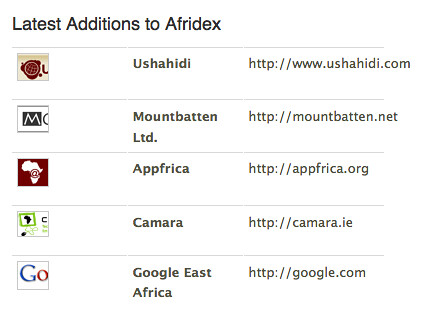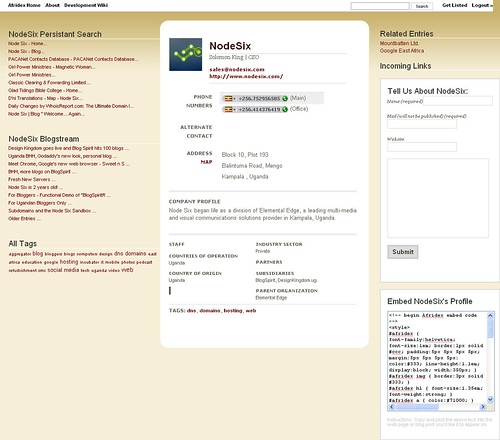Exactly one year ago Ushahidi was launched. It’s hard to believe that only 12 months ago we were in the midst of the Kenyan post-election violence… so much has happened.

It’s not just Kenya anymore – Ushahidi is now a global platform that can be used anywhere, by anyone, to track crisis or disaster reports. Today we see Ushahidi being used in the DR Congo, by Al Jazeera in Gaza and in Kenya to find peace heroes.
We’ve come a long way in one year, and it’s in no small part to this being an open source, community-inclusive effort. Developers from Ghana, Uganda, Kenya, South Africa, Malawi and the US have all pitched in to make it happen. Fans, bloggers, designers and the media from all over the world have all helped raise awareness of the new platform.
[Read a full list of what we’ve done and what is planned for 2009 on the Ushahidi Blog]
What’s at the core?
In our quest to decrease the impact of a crisis, emergency or disaster, we rely on a free, open source platform that can be used by anyone. Allowing them to replicate what took us 3 days to build in a matter of hours.
To truly understand Ushahidi, you have to understand our roots in Africa. We believe if it works there, it will work anywhere. This means that we need to focus first on mobile phones, then on the internet. From the beginning, Ushahidi has been about letting ordinary people use what’s in their pocket, their mobile phone, to send in reports happening around them.
We focus on mobile-only interaction as a basic tenet, and creating a platform that serves the developing world first, then offering that platform to the West as something that they can use too.
Mobiles and disasters
We are all part of a sea change in news and information flow and transparency. Where the barriers are finally so low that anyone can tell their story, and the whole world can see it. There is no stopping this change in information dynamics, there is only harnessing it in ways that add more value.
Mobile phones, be they simple SMS only phones like those found in Africa are already being used to get the word out during tense times. We saw it with Ushahidi in Kenya. Again in Zimbabwe’s election (pictures of the count tally at polling stations). In Mumbai and in Gaza. Those are the hot-flash political emergencies, and mainstream media is concerned, as are many experts and government officials, about how empowered ordinary people have become in the gathering, disseminating and amplifying of information in ways that just weren’t possible before.
Ushahidi is here to make it even more open.
The problem is that it’s no longer one-to-many mass broadcast, it’s now mass-broadcast to mass-broadcast. How do you stop 6 million SMS messages without crippling your own infrastructure and ability to get work done?
The answer is not to shut it down or make people talk/share less – that will never happen. Instead, it is in figuring out a way to harness information from an even greater number of people. The more data that is collected, the less chance that bad data can have an adverse effect.
Final thoughts
Ushahidi is still a small team. It’s gotten so busy that we just brought on our first full-time developer, other than the co-founders, yesterday. An amazing programmer from Ghana named Henry Addo. We believe we’re on to something special. Something at the crux of the new worlds of media, information and citizen journalism. As busy and crazy as 2008 has been, I think we’ll all be amazed when 2009 really gets going…
Finally, a HUGE thank you to all our supporters: the bloggers, Twitterers, Facebook contacts, friends and family for helping get Ushahidi this far.
(special thanks to Caleb Bell for the graphic)
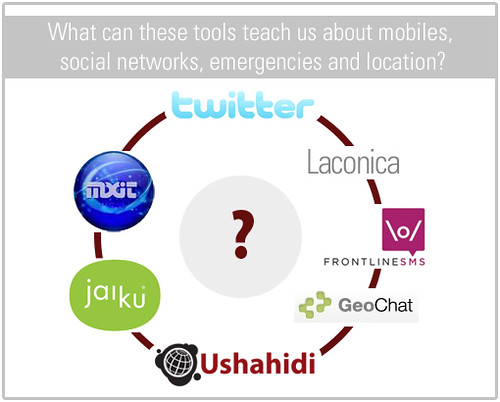

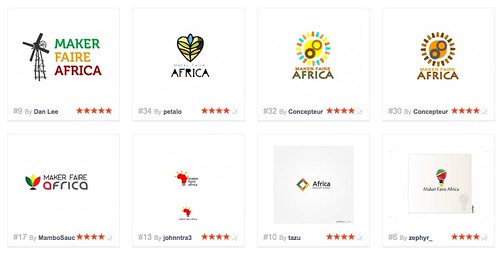



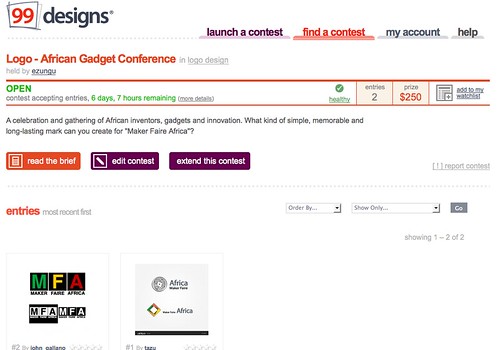
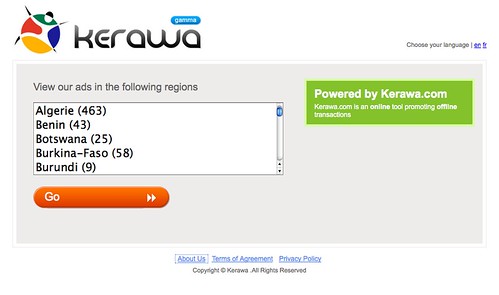
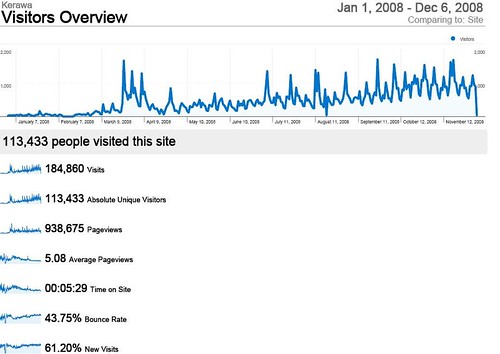
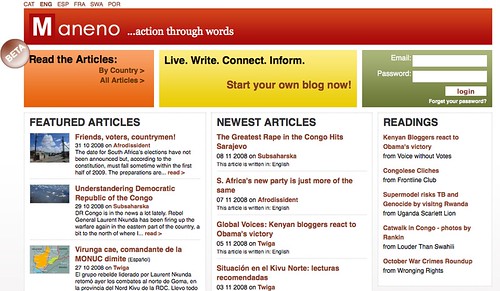
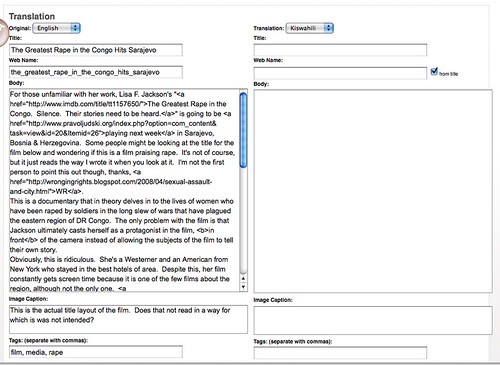
 We need to re-frame the way we think about technology in Africa before we can expect others outside of Africa to do the same. Our challenge is to get people to realize that there is a real competitive advantage to developing and testing software in Africa. After all, if it works in Africa, it will work anywhere.
We need to re-frame the way we think about technology in Africa before we can expect others outside of Africa to do the same. Our challenge is to get people to realize that there is a real competitive advantage to developing and testing software in Africa. After all, if it works in Africa, it will work anywhere. 
